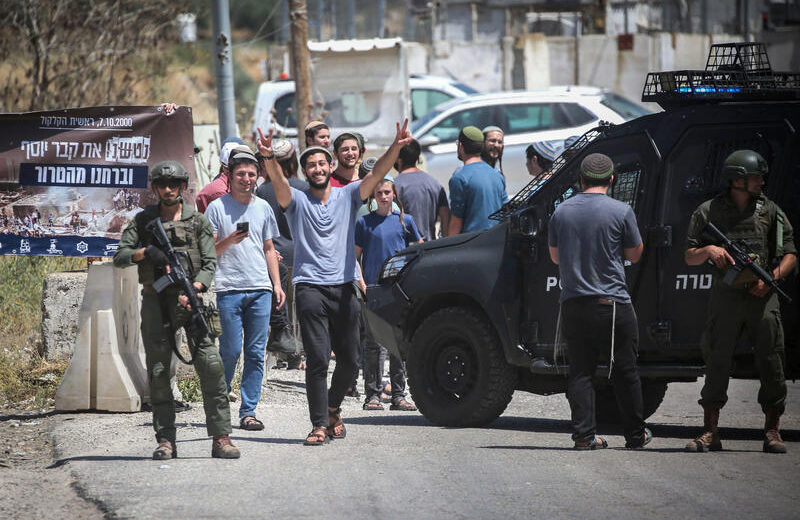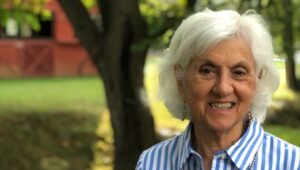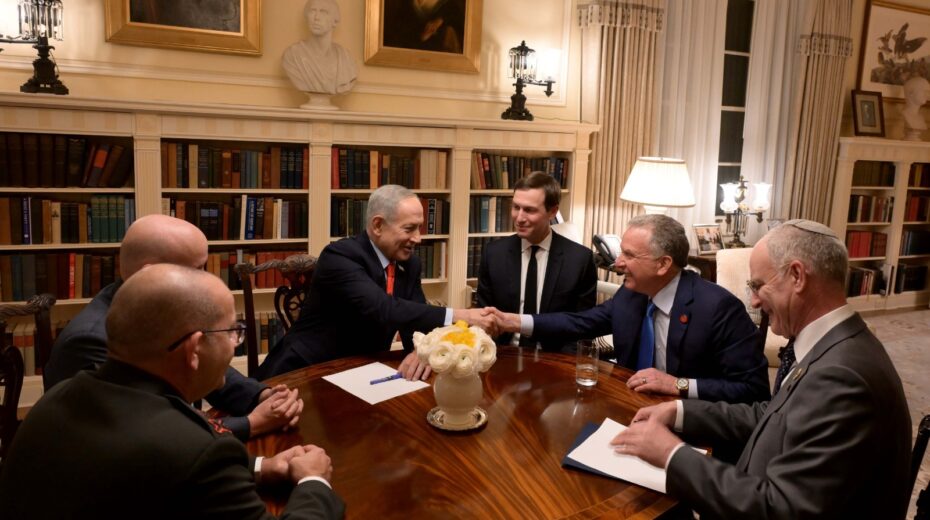A violent incident in the Binyamin region of the biblical heartland (Judea and Samaria) is making headlines today both in Israel and abroad, but for different reasons. In Israel, the emphasis is on the confrontation between IDF soldiers and Jewish “settlers,” while headlines abroad focus on whether or not a local Christian village was attacked as part of that incident.
The broad strokes
On Friday night, a small group of local Jewish residents gathered outside the Palestinian village of Kfar Malikh to the northwest of Ramallah.
Israeli soldiers who spotted the group began moving to the area to disperse them. At that point, a larger number of Jewish activists began arriving to that and other locations in the general area, and damaging Palestinian property in several villages.
At the flashpoint near Kfar Malikh, there was a violent confrontation between soldiers and the group of local Jews.
‘No problem with Christians’
One of the nearby Palestinian villages that reportedly suffered damage in the riots was Taybeh, a small Christian village known by many Israelis for its brewery.
Israel Today called Yehuda Amrani, a spokesman for the Jewish communities in the Binyamin region, to ask why a Christian village was attacked.
In our phone conversation, Amrani stressed that “Taybeh was not attacked, and Palestinian Christians are not the problem.”
“The tensions in the region come mostly from Muslim Arabs who attack us on the roads and in the fields,” Amrani explained. “With the Christians in the area, we generally have respectful relations.”
The Christian village of Taybeh is located about two kilometers from Kfar Malikh, the flashpoint of the weekend troubles. “Taybeh was never the target of this attack,” Amrani assured us. “I have friends there and have visited several times, even to enjoy the local ‘Taybeh Beer.’ Many Christians from the village work in our communities. We’ve coexisted peacefully for years.”
Amrani conceded that misunderstandings may occur: “When someone speaks Arabic, some of the youths don’t immediately distinguish between Muslims and Christians. But that’s no excuse. Violence against innocent people – whether Christian or Muslim – is unacceptable and a sin.”
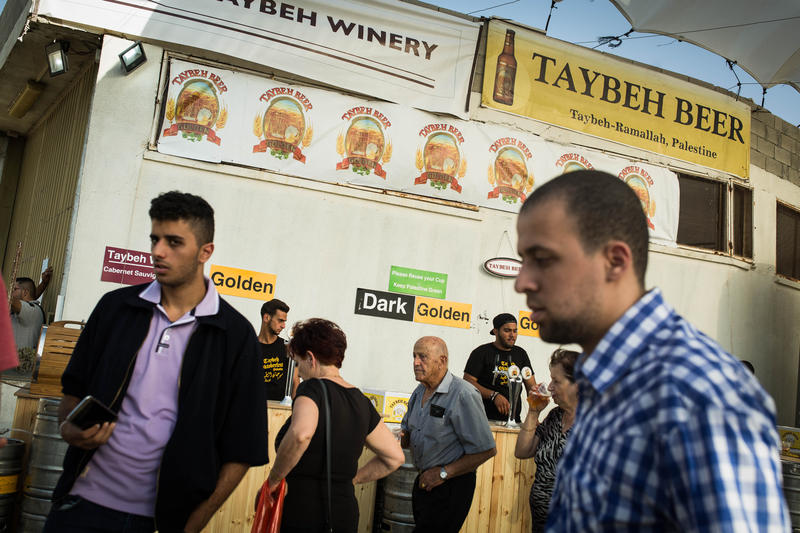
The brewery in the Palestinian Christian village of Taybeh is very popular with Israelis. Photo by Sebi Berens/Flash90
Background
Why was there an incident at all? Why was a group of masked Jewish youth roaming the area looking to damage Palestinian property?
Amrani told us that in recent months, almost every Shabbat, there have been provocations from Arab groups against Jewish residents in the area. Out of frustration and anger, a small group of Jewish youths decided to take matters into their own hands and vandalized property in the village of Kfar Malikh – an act Amrani strongly condemns: “That was wrong. Those responsible must be held accountable. The settler leadership completely rejects such behavior and does not tolerate vigilante justice.”
Clash of settlers of soldiers
The focus of Israeli headlines following the incident was the violent confrontation between the group of Jewish youth and the IDF soldiers sent to disperse them.
The army says the Jewish rioters threw stones at them, damaged military vehicles, and attempted at one point to run over soldiers.
The Honenu legal defense group, which represents some of the rioters involved, charged that the IDF soldiers responding to the scene had used live fire and hit one of the Jewish youths in the upper body: “The bullet entered his arm and lodged in his back. He is suffering from shattered bones in the shoulder and arm, blast injuries to the lungs, and shrapnel wounds.”
The army denied opening fire at the Jewish rioters, but said it was investigating the claim.
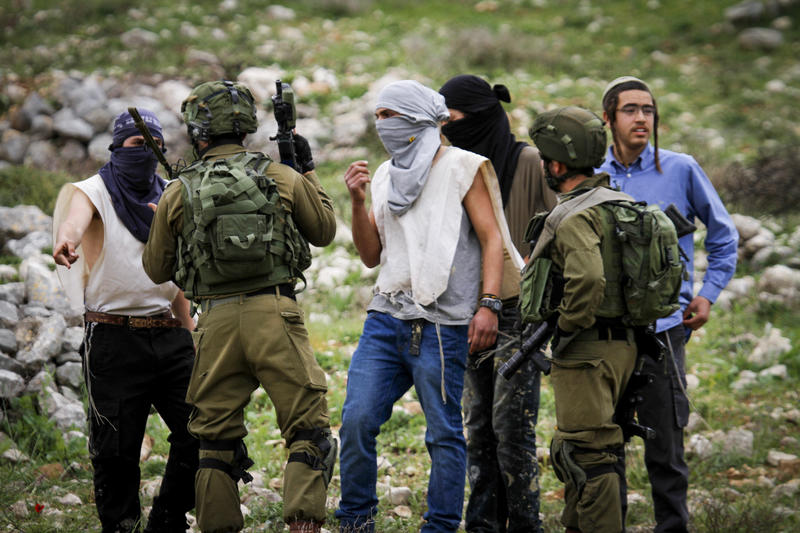
Israeli soldiers argue with masked Jewish youth during a previous confrontation in Samaria. Photo by Nasser Ishtayeh/Flash90
Official reactions
IDF Chief of Staff Eyal Zamir had this to say after the incident: “I strongly condemn any violence against IDF soldiers, Israel Border Police, and all security forces. I expect all law enforcement authorities, legal authorities, and welfare agencies to address this phenomenon in a comprehensive and decisive manner.”
Prime Minister Benjamin Netanyahu reacted to the confrontation: “I strongly condemn the acts of rioting that took place in the Binyamin region, during which IDF soldiers were attacked. The State of Israel is a state of law, and no one is allowed to take the law into their own hands. The incident must be thoroughly investigated, and the law must be fully enforced against anyone who broke it and acted against our soldiers.”
Netanyahu stressed that the lawlessness had been perpetrated by a “small minority” of local Jewish residents who do not represent the overall Jewish community in the biblical heartland (ie. “Settlers”).
That sentiment was echoed by Amrani in his remarks to Israel Today: “When a drug dealer is arrested in Tel Aviv, no one claims that all Tel Aviv residents are criminals. The same principle should apply to isolated incidents in the biblical heartland of Judea and Samaria. We condemn these actions – without hesitation or excuse.”
Finance Minister Bezalel Smotrich, who is also responsible for government policy in Judea and Samaria, stated: “The IDF and the settlers are one and the same. Whoever raises a hand against IDF soldiers is fighting against the settlement enterprise, not for it. And yet—live fire against Jews is forbidden and dangerous.”
Defense Minister Israel Katz: “I strongly condemn the serious violent incidents and attacks on IDF soldiers in the Binyamin region and call on the law enforcement authorities to act immediately to locate all those who engaged in violence and bring them to justice, as is done everywhere. I appeal to rabbis and settlement leaders to strongly condemn and disavow these acts of violence. The State of Israel will not allow violence or taking the law into one’s own hands and will not permit harm to IDF soldiers who courageously fight Palestinian terrorism in Judea and Samaria and protect the settlers’ security day and night.”
Playing into the enemy’s hands
What is clear is that Israel can ill afford such internal turmoil. Especially when it fuels hostile foreign narratives of Jewish “settlers” as the root cause of all Middle East conflict.
It is also a major blow to Israel’s internal moral. Israeli citizens must not attack IDF soldiers, and IDF soldiers must not shoot Israeli citizens. Otherwise the notion of a “people’s army” disappears.
Want more news from Israel?
Click Here to sign up for our FREE daily email updates


